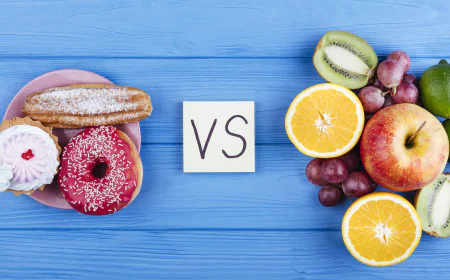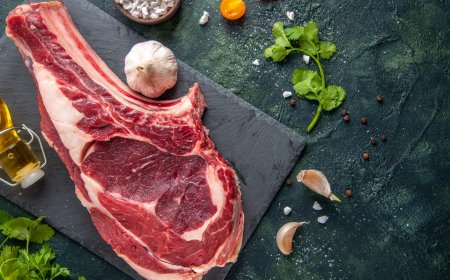Mediterranean Diet and Intermittent Fasting: How to Combine Them for Health & Weight Loss
Discover how to combine the Mediterranean diet and intermittent fasting for better health, sustainable weight loss, and energy. Easy tips, meal plans, and results.

Mediterranean Diet and Intermittent Fasting: The Ultimate Health & Weight Loss Combo
What happens when you combine two of the most scientifically supported eating patterns in the world — the Mediterranean diet and intermittent fasting? You get a powerful, sustainable strategy for weight loss, heart health, brain function, and longevity.
In this in-depth guide, you’ll learn how to combine intermittent fasting with the Mediterranean diet, why it works so well, and how to implement it in your life for maximum results without restriction.
What Is the Mediterranean Diet?
The Mediterranean diet is based on the traditional eating habits of countries like Greece, Italy, and Spain. It emphasizes:
- Whole foods: vegetables, fruits, whole grains
- Healthy fats: olive oil, nuts, avocado
- Lean proteins: fish, legumes, moderate poultry
- Herbs and spices instead of salt
- Occasional wine and dairy
- Very limited red meat and sugar
Studies link it to lower risk of heart disease, stroke, diabetes, and cognitive decline.
What Is Intermittent Fasting?
Intermittent fasting (IF) is a time-based eating pattern that cycles between eating and fasting periods. It doesn’t restrict what you eat but when you eat.
| Type | Fasting Hours | Eating Hours |
|---|---|---|
| 16:8 | 16 | 8 (e.g., 12 PM–8 PM) |
| 18:6 | 18 | 6 |
| 20:4 | 20 | 4 |
| OMAD | ~23 | 1 Meal/Day |
| 5:2 | 2 low-calorie days/week | 5 normal eating days |
Why Combine the Mediterranean Diet and Intermittent Fasting?
- Synergistic Fat Loss: IF promotes ketosis; Mediterranean foods keep you full and nourished.
- Metabolic Reset: IF improves insulin sensitivity; Mediterranean diet lowers inflammation.
- Supports Heart Health: Olive oil, fish, nuts + fasting = lower blood pressure, LDL, and triglycerides.
- Easy to Stick To: IF simplifies meal timing; Mediterranean meals are flavorful and satisfying.
- Boosts Longevity: Both reduce oxidative stress and promote autophagy.
Health Benefits of the Mediterranean + IF Combo
- Weight loss without counting calories
- Lower blood sugar & improved insulin sensitivity
- Reduced heart disease risk
- Enhanced brain function & memory
- Reduced inflammation
- Hormonal balance
- Cellular anti-aging
Sample Meal Plan: Mediterranean Diet + 16:8 Fasting
Fasting Window: 8 PM – 12 PM (water, black coffee, green tea allowed)
Eating Window: 12 PM – 8 PM
| Time | Meal |
|---|---|
| 12 PM (Break Fast) | Greek salad with olives, feta, cucumbers, tomatoes + boiled egg + lemon water |
| 3 PM (Snack) | Handful of almonds + sliced apple with nut butter |
| 7 PM (Dinner) | Grilled salmon with roasted vegetables + quinoa + glass of red wine (optional) |
Tips for Success
- Cook with olive oil, not butter
- Use herbs and spices instead of salt
- Load up on green veggies at every meal
- Eat nuts and legumes for healthy protein and fiber
- Stay hydrated throughout the fasting window
- Prioritize quality sleep to regulate hunger hormones
Weekly Meal Ideas (Optional Structure)
| Day | Featured Mediterranean Meal | IF Method |
|---|---|---|
| Monday | Chickpea veggie stew | 16:8 |
| Tuesday | Grilled chicken with tabbouleh | 16:8 |
| Wednesday | Sardine & arugula salad | 18:6 |
| Thursday | Lentil soup + whole grain pita | 16:8 |
| Friday | Shrimp over zucchini noodles | 20:4 |
| Saturday | Mediterranean-style shakshuka | OMAD |
| Sunday | Free day (listen to body) | Flexible |
What to Avoid
- Overeating during the eating window
- Using refined oils (vegetable, canola)
- Processed “Mediterranean” snacks (marketing gimmicks)
- Skipping hydration
- Ignoring your body’s feedback
Who Should Be Cautious
- Pregnant or breastfeeding women
- People with a history of eating disorders
- Individuals on blood sugar-lowering medications
- Those with chronic medical conditions
- Always consult your doctor before starting
Realistic Results Timeline
| Timeframe | What to Expect |
|---|---|
| Week 1 | Better digestion, less bloating, light hunger |
| Week 2 | Reduced appetite, mental clarity |
| Week 3 | Steady fat loss, visible waistline change |
| Week 4+ | More energy, improved blood pressure, deeper sleep |
Conclusion
The Mediterranean diet and intermittent fasting are a science-backed, delicious, and sustainable approach to lifelong health. They work better together—helping your body burn fat, fight inflammation, and stay satisfied without deprivation.
If you’re tired of crash diets and calorie-counting, give this power combo a shot. Start with a simple 16:8 fast and fill your plate with olive oil, veggies, fish, and whole grains—your body and brain will thank you.
"To learn how fasting supports heart health, brain function, and long-term wellness, check out this detailed intermittent fasting for health guide from Lean Fasting."
FAQs – Mediterranean Diet & Intermittent Fasting
Q1: Can I combine Mediterranean meals with fasting?
Yes! They are a perfect match—healthy, filling, and nutrient-rich.
Q2: Will I lose weight faster with both?
Most people experience steady, long-term weight loss with this combination.
Q3: Can I drink wine during fasting?
No—wine has calories. You can enjoy it during your eating window only.
Q4: What’s the best fasting schedule with this diet?
Start with 16:8. It’s the easiest to maintain with Mediterranean meals.
Q5: Do I need to count calories?
No—if you eat whole Mediterranean foods and stick to fasting windows, calorie control happens naturally.































